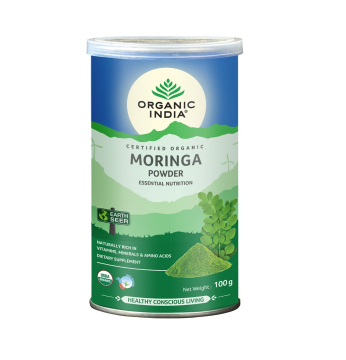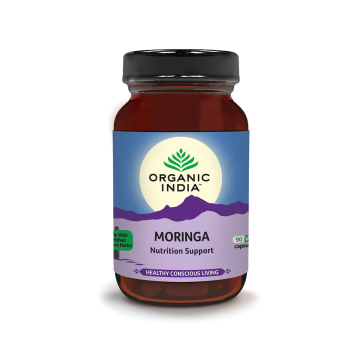Moringa: The Very Auspicious Tree
In India, Moringa is called “Shobhanjana,” meaning “very auspicious tree,” because of its multiple uses and benefits. The tree is also called “Shingu” or “arrow,” because the Vedics believed that it quickly reaches the body’s deepest tissues.
All parts of the Moringa tree — seeds, pods, leaves, flowers, and roots — are edible, and loaded with nutrients. Moringa leaves are higher in protein than legumes, making the plant an important nutritional source, with 25 percent protein and 25 percent fiber per serving.
Moringa Body and Mind Benefits
Moringa contains 25 times more iron than spinach, seven times more vitamin C than an orange, four times more calcium and twice as much protein as whole milk, triple the potassium of a banana, and 47 known antioxidants. Moringa is believed to support healthy fat metabolism and has few known side effects. It may also help the body absorb and assimilate iron. A single serving contains all nine essential amino acids.
Where is Moringa grown?
ORGANIC INDIA Moringa is sourced from two areas: Bundelkhand, and Uttar Pradesh, India.
Moringa for Healthy Conscious Living
ORGANIC INDIA’s Moringa is organically grown according to ancient Ayurvedic regenerative cultivation practices to ensure the highest possible efficacy, or “prana.” All ORGANIC INDIA herbs are processed and tested in compliance with FDA and World Health Organization safety protocols.
At ORGANIC INDIA, we recognize the vast interconnectedness of life. From seed, to soil, to field, to factory, our products empower the farmers of India, promote environmental and economic recovery, and provide wellness solutions derived from nature’s intelligence.










Validate your login